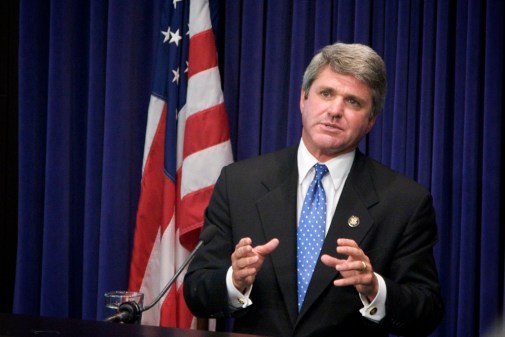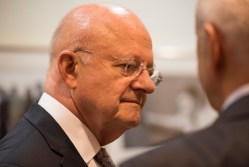Members of Congress are often known for their lack of brevity.
They spend much of their time debating and drafting long and comprehensive bills. And yet, in the world of social media, these verbose leaders are limited to 140 characters.
Social media have changed the landscape of politics. The 2008 election saw a transformation of what social media can do for a candidate’s campaign, and discovered it as a tool to reach the 18-24-year-old demographic. In the 2012 election, traffic on Twitter increased by 43 percent, according to TVWeek.com. President Barack Obama had perhaps the most extensive reach on Twitter, with more than 32 million followers, exceeding Mitt Romney’s following by more than 30 million.
Twitter has led many public figures to success, but for some it caused their demise. It’s hard to forget the images that were made very public of a certain congressman from New York. Anthony Weiner’s Twitter flop was the social media shot heard around the world. It was one of the first times constituents had to decide whether they cared what their elected officials were doing in cyberspace, and if social media faux pas were forgivable. It was a lesson to all politicians of the risks of being careless with social media accounts.
Former Secretary of State Hillary Rodham Clinton is one of the very few exceptions in the societal standards of being present in Twitterverse. The potential 2016 presidential candidate has virtually no Twitter presence, not even one lone tweet. Yet, she has a cult following among young people and very high approval ratings.
On the opposite end of the spectrum is Newark, N.J., Mayor Cory Booker, with an impressive Twitter following of more than 1.3 million followers. To put this in perspective, Booker has more Twitter followers than Joe Biden and Paul Ryan combined — two men with considerable national political sway.
Booker has always had an impressive Twitter presence, but that presence exploded in the aftermath of Hurricane Sandy. Booker didn’t use Twitter as a platform for political agenda’s and press releases during that time, but rather as a way to interact directly with constituents. He answered questions, offered emergency advice, and went as far as to open up his home to Newark residents without power.
Please let any1 on Homestead know they can come 2 my house & use the spare apt on 1st floor 2 relax, get warm, charge up etc @my_serenelove
— Cory Booker (@CoryBooker) November 1, 2012
This zealous embrace of social media by Booker has some wondering if he plans to bring that enthusiasm to Washington when he runs for Senate in 2014. It seems, however, that leaders in Washington could take to learn from Bookers social media presence. The notion remains that younger members of Congress and their offices have a much better grip on social media; however, that is not always the case.
The youngest member of the House, Rep. Paul Murphy (D-Fla.), 30, only has about 150 more Twitter followers than the oldest member of the House, Rep. Ralph Hall (R-Texas.), 89. In the Senate, the youngest member ,Sen. Christopher Murphy (D-Conn.), 39, only has 694 more Twitter followers than Sen. Frank Lautenberg (D-N.J.), 89, and boasts 11,623 Twitter followers.
Another successful tweeter in Washington is Sen. Chuck Schumer (D-N.Y.). With more than 56,000 followers, he is constantly sending updates on votes, bills on the floor, and senate sessions. Another character on Twitter worth following is Rep. Jared Polis (D- Colo.). While his tweets don’t have the same political urgency as Schumer’s, they are wildly entertaining. His tweets are filled with wit, humor, and the occasional, adorable video of a monkey eating macaroni.
Am I jealous of @wilw b/c of his 2 million followers or because he was Dr. Crusher’s son & saved the day more than the Powerpuff Girls?
— Jared Polis (@jaredpolis) May 17, 2013
Twitter has also proved to be a great bufferzone for politicians who need to address something not quite worthy of a press conference. After the State of the Union rebuttle water incident, Sen. Marco Rubio (R-Fla.) took to Twitter:
Today is my 42nd birthday and I’m using it to help solve the water crisis with @charitywater my.charitywater.org/marcorubio twitter.com/marcorubio/sta…
— Marco Rubio (@marcorubio) May 29, 2013
Others simply use to blow off some steam after a heated debate with a colleague, like Rep. Trent Franks (R-Ariz.) who likes to use Twitter as a platform to sound off on his anti-abortion views. Sen. Debbie Stabenow (D-Mich.) likes to use her 140 characters to cheer on Michigan sports teams, and Rep. Scott DesJarlais (R- Tenn.) hosts an almost daily roast Obama on his Twitter.
In times of partisan gridlock, Americans can take solace in the fact while their elected officials may not be able to agree on all things, they still do have something in common — their use of text speak, smiley faces and ability to retweet each other.






